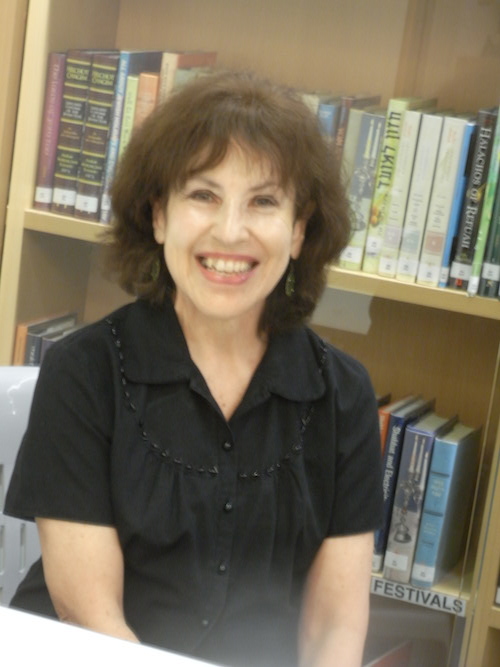A Balanced Accounting
02/09/2014 10:46:19 AM
| Author | |
| Date Added | |
| Automatically create summary | |
| Summary |
We are currently in the month of Elul, the month of preparation for the Day of Judgement, Rosh HaShana.
Traditionally, people associate Elul with a time of introspection.
It is the month when one reviews the negative aspects of one’s character and shortcomings in one’s compliance with G-d’s Torah, and decides on ways to improve them.
However although this is necessary, it is by no means the whole purpose of Elul. Indeed, as we shall demonstrate, it may not even be the main part.
You see, there is a famous Chassidic dictum, enunciated by the previous Lubavitcher Rebbe, Rabbi Joseph Isaac Schneerson:
“Just as one must recognise shortcomings, so too, one must recognise his own qualities.”
True, it is important to recognise and improve upon one’s shortcomings, but the Rebbe ascribes at least equal importance to the recognition of one’s own good qualities.
The reason for this is clear: If a person spends too much time thinking about how far short he has fallen, it is quite possible that rather than becoming encouraged to do more, he will merely throw in the towel and give up.
Similarly if a person doesn’t spend some time contemplating how much good he possesses and has already done, he is likely to consider himself a spiritual “loser” and not even bother trying to do better.
This is why it is so important to balance an accounting of one’s negative traits and actions with an at least equal measure of contemplation of one’s positive character traits and actions.
This should not of course be done with the intention of becoming complacent and thinking, “Wow, I have arrived already and don’t need to do any more,” but rather as a spur to becoming better still.
The Rebbe, Rabbi Menachem Mendel Schneerson, provides a further inspiring insight to the above words of his illustrious predecessor.
He notes that the above statement includes the words “his own” only when referring to the person’s good qualities, but not when mentioning shortcomings.
The reason, explains the Rebbe, is that in essence, sins and shortcomings are foreign and don’t belong to a Jew. The only reason that a jew comes in contact with sin is that he has been charged with a mission to elevate this world; thus inevitably he comes in contact with and is influenced by, the negative inclination within him. However, even after he succumbs to sin, it is truly not his, but merely an extraneous matter that lingers on due to outside influences and environment.
And so the month of Elul is a time when the Jew must become aware of his quintessential essence - his goodness and kindness - for this is his true self.
Rabbi Benzion Milecki OAM, Shabbat Shoftim, 5774
Thu, 19 June 2025
23 Sivan 5785
Contact Us:
Today's Calendar
| Shacharis : 6:30am |
: 9:28am |
: 4:55pm |
: 5:21pm |
This week's Torah portion is Parshas Sh'lach
Candle Lighting
| Friday, Jun 20, 4:36pm |
Havdalah
| Motzei Shabbos, Jun 21, 5:35pm |
Shabbos Mevarchim
| Shabbos, Jun 21 |
Full Calendar Here
Happy Jewish Birthday!
Thursday 23 Sivan
- Hadassa Kaplan
- Raphael Grossman
- Tova Racheli Ray
Friday 24 Sivan
- Benjamin Weiss
Saturday 25 Sivan
- Batya Lepar
- Max Nightingale
- Neta Rothman
We wish "Long Life" to:
No lifecycles today
Halachik Times
| Alos Hashachar | 5:39am |
| Earliest Tallis | 6:10am |
| Netz (Sunrise) | 6:59am |
| Latest Shema | 9:27am |
| Zman Tefillah | 10:17am |
| Chatzos (Midday) | 11:56am |
| Mincha Gedola | 12:21pm |
| Mincha Ketana | 2:50pm |
| Plag HaMincha | 3:51pm |
| Shkiah (Sunset) | 4:53pm |
| Tzais Hakochavim | 5:21pm |
| More >> | |
South Head Catering

South Head Catering is well and truly on the map! What began as a small initiative to provide a little variety and some new options by the South Head Ladies Guild has turned into a highly successful venture with people absolutely raving about the service and products on offer.
Want to know more? Want to help out and volunteer? Visit our Catering page.
Mikvah Aziza
Mikvah Aziza at 662 Old South Head Road, Rose Bay has re-opened.
Please click here for details:
South Head Library
 Welcome to the Sandra Bransky Library & Youth Synagogue, located on the first floor and including the Beit Midrash. Drop in any Sunday morning between 9 - 11am.
Welcome to the Sandra Bransky Library & Youth Synagogue, located on the first floor and including the Beit Midrash. Drop in any Sunday morning between 9 - 11am.
I look forward to helping you get the most out of our beautiful world of books at South Head.
Sylvia Tuback, South Head Libarian
southheadlibrary@gmail.com
SH'LACH
Rose Bay, NSW 2029
(02) 9371 7300
Privacy Settings | Privacy Policy | Member Terms
©2025 All rights reserved. Find out more about ShulCloud



